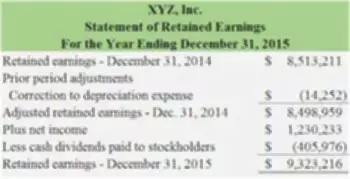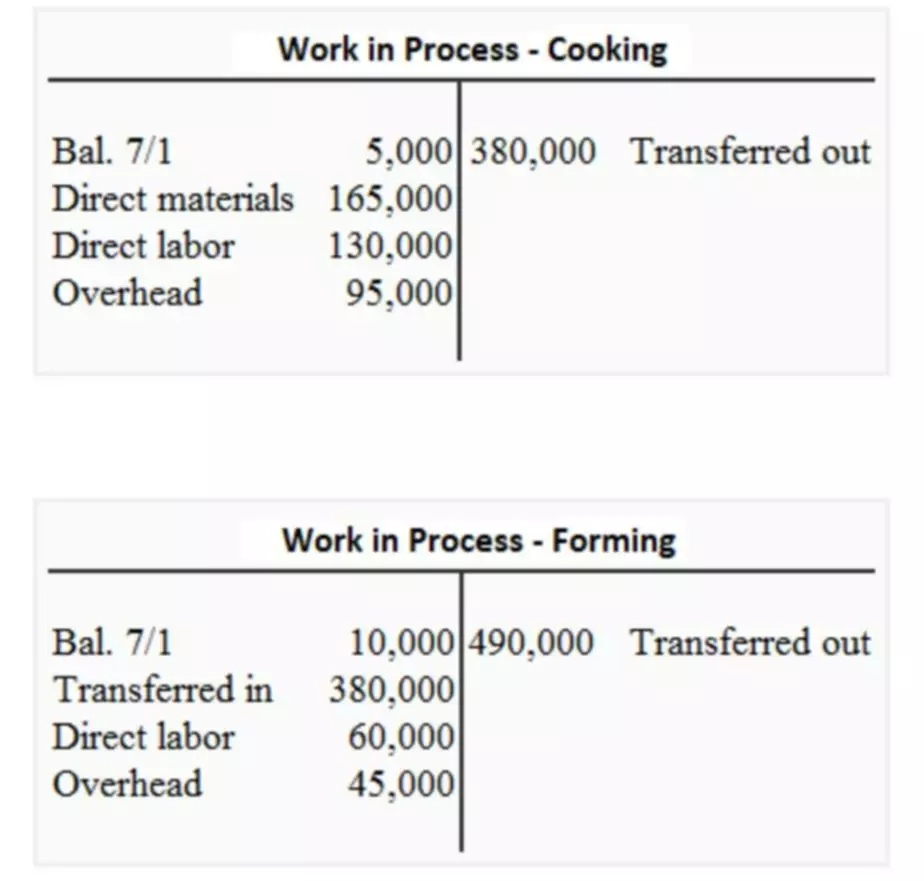Content

The concept ofembedded payments in B2B transactionshas become a hot topic in the past couple of years. There are two types of factoring; recourse and non-recourse.Recourse factoringis the most common. https://www.bookstime.com/ Sign up to receive more well-researched small business articles and topics in your inbox, personalized for you. On day 29 the debtor sends a check to a lockbox opened by the factor under your name.

After the completion of this invoice “sale,” the responsibility for collecting the payment from your customer shifts from you, to the factor. The factoring company will contact the client who owes the invoice, and that client will need to direct payments and questions to the factor instead of you. This is an important feature of invoice factoring that you should consider, since it necessarily affects your relationship with your customer. If you’re eligible only for recourse factoring, you’ll be responsible for any unpaid invoices.
No Collateral Required
An agreement is made on how long the collection process may take before the financier has to be informed. The invoice then disappears from the financing or the invoice is still transferred to the financier.
- Further, non-recourse factoring fees are generally higher because it’s riskier for factoring companies.
- The transaction fee or the primary cost of doing business with a factoring company is known as the discount rate, or the factor rate.
- If you choose to factor invoices, you need to find afactoring companyand sell the face value of your customer invoices.
- Fundbox is often a good choice for business owners who want funds quickly, because the entire application process only takes minutes.
- CHOCC factoring is a type of invoice factoring where you still chase payment for the invoices you’ve factored, rather than the factoring company doing so.
For example, if you own a construction company, you will want to find a factoring company that is familiar with dealing with construction clients and trusted by other companies in your industry. When choosing a factor to work with, you should compare recourse vs. non-recourse factoring.This refers to what happens in scenarios where your clients do not pay your invoices on time. Credit Check Fees – A factoring company that performs credit checks on you or your customers may pass on the costs of these tests to you. Invoice factoring has become popular among SMBs in recent years, since they are frequently in need of faster cash flow, not only to sustain their operations, but grow as well.
Pros and cons of factoring
Acceptance of signed documents provided by facsimile as being legally binding has eliminated the need for physical delivery of «originals», thereby reducing time delays for entrepreneurs. Originally the industry took physical possession of the goods, provided cash advances to the producer, financed the credit extended to the buyer and insured the credit strength of the buyer.
Ideally, factoring would empower entrepreneurs to grow their business with a transparent, cost-effective and efficient process. Traditional factoring companies know this and don’t feel the need to provide more cost-effective or transparent solutions. Small business invoice factoring is an ideal form of financing for startups and small businesses that haven’t reached their full potential yet; it helps organizations grow stronger. On this page, we’ll go over some of the benefits of invoice factoring and how it works, so it’s easier to see if it’s the right way for your small business to level up. Banks, though, do not look so much at growth potential as they do number of years in operation, hard assets, real estate and equipment that can be used as collateral. That works great for companies with a long history of outstanding performance and impeccable balance sheets. If a company hasn’t been in business long, is in a growth phase or in the process of a turnaround, there may not be much for a bank to look at.
What to look for in a factoring company
Invoice factoring is not only far more affordable than these options but can deliver serious ROI when you apply the cash you receive to meaningful opportunities. A term loan is the typical business short-term loan that you would get from a bank.
How do I get better at factoring?
- Always start with real numbers: Students are more familiar with calculations with real number than variables, so working with real number will reduced the the amount of calculation and chance of making mistakes.
- Recognize common terms:
- cross multiplication.
Information provided on Forbes Advisor is for educational purposes only. Your financial situation is unique and the products and services we review may not be right for your circumstances. We do not offer financial advice, advisory or brokerage services, nor do we recommend or advise individuals or to buy or sell particular stocks or securities. Performance information may have changed since the time of publication.
Non-Recourse Factoring
Factors promise quick upfront payments but are typically bogged down by legacy systems, paperwork and manual processes. Once you’ve sold an invoice to the factor, it decides how to collect invoice payments. Your client relationships could suffer if the factor inundates your customers with robocalls or suddenly introduces unfamiliar processes. Most companies can’t get away with waiting a month or more to pay their employees, but that’s precisely what staffing companies contend with. They’re responsible for covering payroll and often benefits for their employees, but the companies they serve may not pay for that labor until more than a month after the person worked. We providefactoring services for staffing companies, and they usually apply the cash to payroll.
- The first type is similar to a traditional bank loan and it’s much cheaper than the second choice.
- More recently, several online factoring companies have emerged, leveraging aggregation, analytics, automation to deliver the benefits of factoring with the convenience and ease afforded by the internet.
- But it also means the company loses control over the handling of collection requests.
- By selling outstanding invoices, you could get access to cash before your customers settle payment.
- Supplier initiated programmes allow suppliers to sign-up to the programme and request early payment on approved invoices before they are due.
Some factoring companies also allow you to replace the unpaid invoice with another receivable of equal or greater value. One aspect of invoice factoring that may intimidate business owners is the level of contact between the factoring company and customers. This stems from the fact that your customer will make payments to a third party instead of to you. Some small business owners imagine hard-earned customers being contacted by a company they’ve never heard of and being hassled for payment.
Complete Guide to Invoice Factoring
Whether you want to learn more about our financing options, are interested in becoming a partner or just have a general question, we’re here to help! Simply fill out the form below and we’ll get it directly into the inbox of the right person. We understand that working capital is critical to your business operations. We’re pros at onboarding new clients and our account management team is here for you every step of the way. If you terminate your relationship with the factor before the term ends, you may have to pay a termination fee.
- Also, factoring companies typically need to manually verify an invoice after it has been submitted.
- Like any lender, factors do everything they can to avoid the risk of losing their capital.
- There are two main kinds of invoice factoring based upon the amount of risk the factor will assume.
- If you can qualify for a low-interest business loan, you may end up paying less than if you choose invoice factoring.
- But if your business is relatively new or has little-to-no cash flow, you may not qualify for a traditional business loan, or you’ll receive high interest rates if you do.
Another advantage of invoice financing is that it may be cheaper than factoring because you do not hand over your whole debtor management. Then, the invoice financing company will work on collecting the customer’s payment. Once they receive it, the remaining amount is factored back to your business. If your customers have a habit of not paying you on time, the factoring company will assume they won’t be paid on time either. Due to this, they’ll be less likely to take on your invoices, because it may be too much risk. While invoice financing and invoice factoring are both known to be much faster than traditional bank loans, invoice financing is usually faster than invoice factoring.
The TreviPay solution includes a cost-effective alternative to factoring with the ability for you to offer a line of credit to your B2B buyers. As this credit is underwritten by TreviPay, the liability for the credit as well as the responsibility for unpaid invoices are no longer yours. For taking on that risk, the factoring company will charge a higher fee, offer lower cash advances, and be more selective in choosing which invoices it buys.
- You also likely will receive 60-95% of the invoice value, not the entire amount.
- The factor must also make sure the invoice is valid, which may include a review of shipping statements and other documentation.
- Apruve embed the fully financed credit program into the order-capture process, including a B2B ecommerce site or into an ERP.
- For example, borrowers in certain industries may receive lower interest rates than others.
- Invoice discounting is only beneficial when you have a relatively high profit margin, since this invoice facility is very expensive.
When determining whether to purchase an invoice, the factoring company will examine a business’s customers and the likelihood they will remit the full value of the invoice. To this end, the factor will look at the customers’ credit ratings, try to assess their accounts payable performance and consider other issues that may affect payment, such as outstanding litigation. The factor must also make sure the invoice is valid, which may include a review of shipping statements and other documentation. Invoice factoring involves selling unpaid invoices to a third-party company so that a business can improve its cash flow in order to fund operations or pursue growth opportunities. Invoice factoring is a business financing tool that offers quicker funding than many other types of loans. Factoring also makes it easier for business owners with questionable credit to get funding, because the owner’s credit isn’t really important – it’s their clients’ creditworthiness that matters.